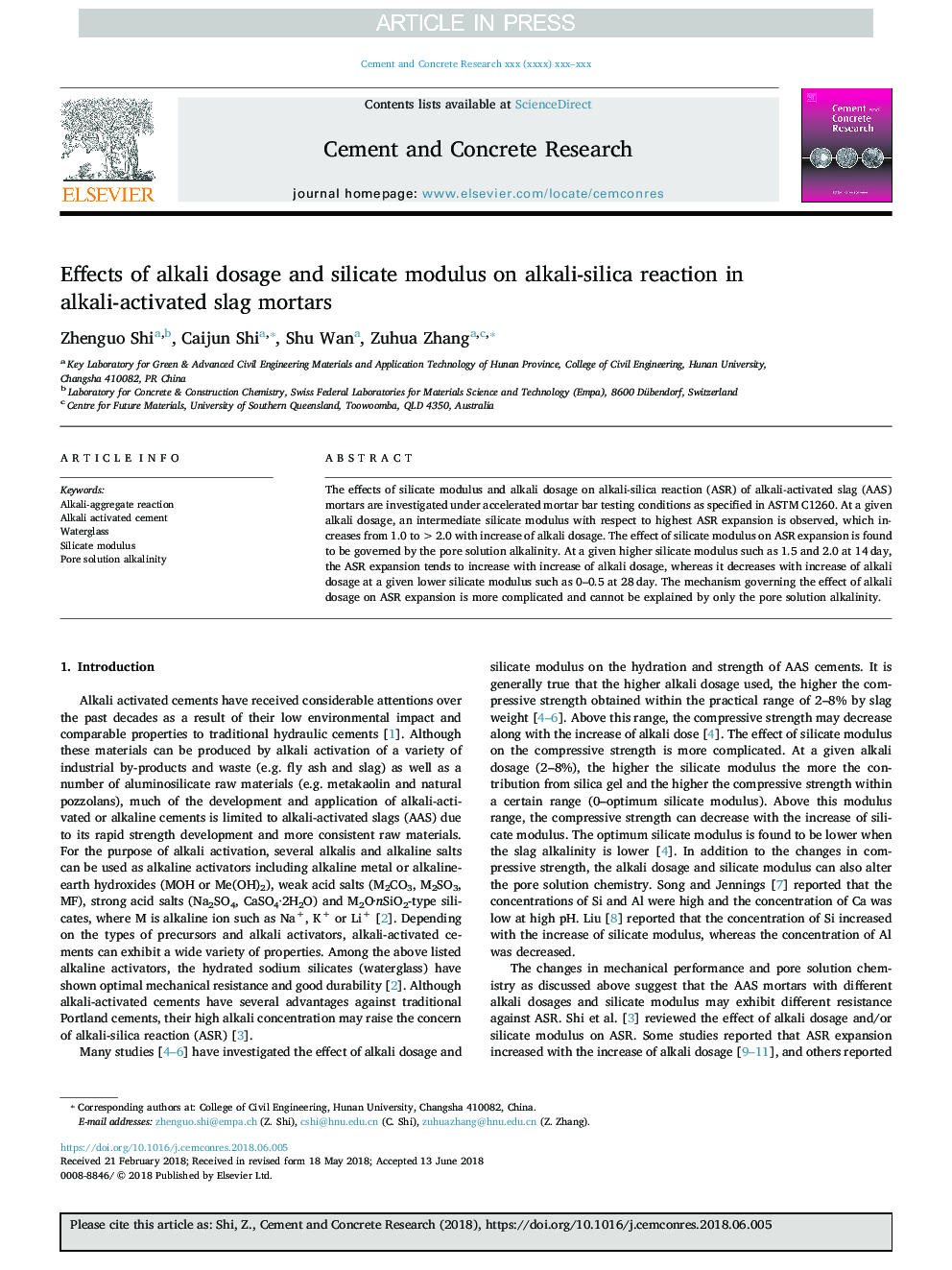| Article ID | Journal | Published Year | Pages | File Type |
|---|---|---|---|---|
| 7884433 | Cement and Concrete Research | 2018 | 12 Pages |
Abstract
The effects of silicate modulus and alkali dosage on alkali-silica reaction (ASR) of alkali-activated slag (AAS) mortars are investigated under accelerated mortar bar testing conditions as specified in ASTM C1260. At a given alkali dosage, an intermediate silicate modulus with respect to highest ASR expansion is observed, which increases from 1.0 to >2.0 with increase of alkali dosage. The effect of silicate modulus on ASR expansion is found to be governed by the pore solution alkalinity. At a given higher silicate modulus such as 1.5 and 2.0 at 14â¯day, the ASR expansion tends to increase with increase of alkali dosage, whereas it decreases with increase of alkali dosage at a given lower silicate modulus such as 0-0.5 at 28â¯day. The mechanism governing the effect of alkali dosage on ASR expansion is more complicated and cannot be explained by only the pore solution alkalinity.
Related Topics
Physical Sciences and Engineering
Engineering
Industrial and Manufacturing Engineering
Authors
Zhenguo Shi, Caijun Shi, Shu Wan, Zuhua Zhang,
